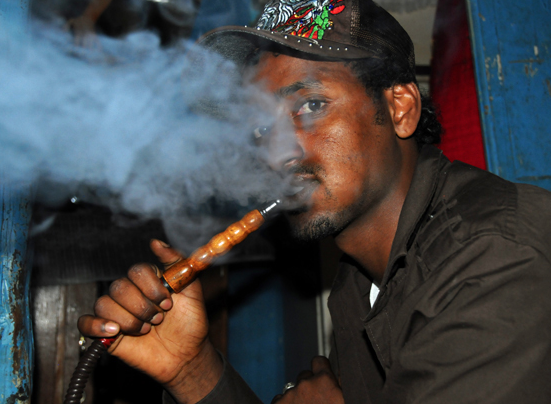By Tesfa-Alem Tekle | Sudan Tribune
January 11, 2015 (ADDIS ABABA) – The capital of Ethiopia’s northern Tigray region, Mekelle, has banned smoking in public areas, making it the first Ethiopian city to implement a tobacco control proclamation bill passed by parliament last year.
Ethiopian lawmakers last year unanimously passed a law prohibiting smoking in public as part of national efforts to discourage the practice and curb tobacco-related illnesses.
The ban, which has been welcomed by the wider public, also intends to help reduce exposure to secondhand smoke.
The new law restricts smoking in public areas, including bars and restaurants and will also be banned in open-air spaces, including sports venues, schools, hospitals, health centres, and other areas where cultural and religious events take place.
The law requires all public and private institutions to post a “No Smoking” sign within full view of patrons and also forbids media from advertising or promoting of tobacco products.
According to sources in Mekelle, individuals caught violating the regulations will be fined $50, while bar owners who fail to enforce the new laws will face a $150 fine.
Approached by Sudan Tribune, residents in Addis Ababa commended the move taken by the city and called on authorities in the capital and elsewhere to follow Mekelle’s lead and introduce similar restrictions.
Young Ethiopians usually start smoking while still in high school due to peer pressure among friends, although the prevalence significantly increasing among students at colleges and universities.
“Most students begin smoking cigarettes and chewing Chat a few months after joining college and I sometimes feel like the colleges are turning into addiction-teaching institutions,” said Kifle lemma, a third-year student at Addis Ababa university.
Another student, who is himself a smoker, said he believes the new law will push him and other smokers to cut their daily consumption of tobacco, while also helping curb passive smoking and discourage those intending to take up the habit.
With a population of some 94 million, Ethiopia, which is Africa’s second most populous nation, is considered to have one of the lowest smoking rates globally.
However, the country still sees tobacco as a growing public health concern.
Recent figures show that the Horn of Africa’s nation has an estimated 2.5 million smokers.
According to a 2012 study by the World Lung Foundation, the number of cigarettes smoked per adult per year in Ethiopia is only 62 cigarettes, well down on those in heavy smoking countries such as Serbia, which consumes more than 2,800.
____________

